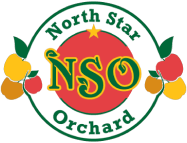Your cart is currently empty!
Our customers frequently ask us if we spray and if we’re organic. These are actually two different questions, and that can be confusing!
Do we spray?
Yes- and so do nearly all fruit and vegetable growers, whether they are certified organic or not. There is a common misconception that organic growers do not spray at all. In reality, growers following organic guidelines spray approved products to protect their fruit and vegetables, just as conventional growers do. The difference is in what product is being applied to the crops.
Are we organic?
No, we are not certified organic – and we’re ok with that. Read on to learn more!

Our vegetables:
are not certified organic. Although we could get the garden certified organic, we decided that the record-keeping and yearly fees required for organic certification are not worth the time, effort, and expense for us. We’d rather spend our time and money growing great food for you. We use crop rotations, compost, floating row covers, hand weeding, and other OMRI-certified (Organic Material Review Institute) methods in our vegetable production. In the vegetable garden, we follow the organic standards carefully.
(The picture here shows row covers protecting garden crops from insect pests.)

Our fruit
is grown using what Farmer Ike calls “Certified Sensible“. We mindfully select what we consider to be the most sensible approach to crop protection to protect ourselves, our customers, and the environment by:
- Planting disease-resistant varieties
- Monitoring and trapping insects
- Encouraging insect-eating birds by providing more than 90 appropriately-sized birdhouses
- Participating in an insect-eating bat study being conducted on the farm by the Rodale Institute
- Using OMRI-certified (Organic Material Review Institute) spray products
- Using conventional chemicals when needed, if a traditionally organic approach is not available or effective
(The picture here shows some of the gadgets and gizmos we use for insect monitoring and trapping.)
Many orchards call what they do “IPM” (Integrated Pest Management), which when properly practiced includes all of the methods above, so we’ll often use that term ourselves.

What about organic fruit?
In our climate on the East Coast, we have growing conditions (in particular, high humidity, wet weather, and newly-introduced insects like the brown marmorated stink bug and the spotted lanternfly) which make it very difficult to grow truly high quality fruit consistently using only organic methods.
For the most part, organic fruit you see for sale in bigger stores is coming from other parts of the country where it is much much easier, between climate conditions and pest pressures, to grow fruit organically. However, some of those areas are located in more desert-like climates, where water wars are an increasing issue, plus most organic fruit needs to be trucked over great distances, which is an environmental issue of its own.
The takeaway:
In making our decisions in fruit crop protection methods, we take into consideration both environmental and safety concerns. Every year there are new and better products that can be used (both organically approved and conventional), and we constantly re-evaluate and update our methods.
Due to all of these decisions, and our concern about safety and the environment, we have an orchard which provides us with relatively undamaged fruit. Plus, the farm is abundant with insect, mammalian and avian life, all of which we like to see! (and we’ve got plenty of naturally-occurring grass and weeds, too)

